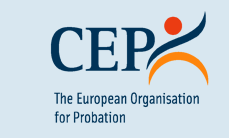Appendix II to Recommendation CM/Rec(2010)1
Glossary of the terms used
Aftercare means the process of reintegrating an offender, on a voluntary basis and after final release from detention, back into the community in a constructive, planned and supervised manner. In these rules the term is distinguished from the term "resettlement” which refers to statutory involvement after release from custody.
Assessment means the process of estimating the risks, needs and strengths of an offender before planning an intervention and/or providing advice to judicial or other competent authorities. In addition, assessment seeks to identify the causes of offending, and whether measures can be taken to reduce the likelihood of its reoccurrence.
Assistance is to be seen as forming an integral part of the supervision process alongside control. It usually covers one or more of the following services: providing assistance in finding housing, employment, education, providing family support, etc. In some legal systems it may be provided by separate agencies.
Complaint refers both to filing an application before a judicial authority and to appealing to an administrative body.
Community sanctions and measures mean sanctions and measures which maintain offenders in the community and involve some restrictions on their liberty through the imposition of conditions and/or obligations. The term designates any sanction imposed by a judicial or administrative authority, and any measure taken before or instead of a decision on a sanction, as well as ways of enforcing a sentence of imprisonment outside a prison establishment.
Conditions and obligations mean any requirements which are integral to the sanction or measure imposed by the deciding authority.
Control means activities limited to ascertaining whether or to ensuring that any conditions or obligations imposed by a sanction or measure are complied with by the offender. Such activities usually include using, or threatening to use stricter sanctions or measures in case of non-compliance. The notion of control is narrower than that of supervision.
Crime prevention means any policy and practice implemented by the agencies of the criminal justice system and other competent agencies and aimed at preventing (or, more plausibly, reducing) crime.
Deciding authority means a judicial, administrative or other authority empowered by law to impose or revoke a community sanction or measure or to modify its conditions and obligations.
Desistance means the process by which, with or without the intervention of criminal justice agencies, offenders terminate their offending activities and maintain crime-free lives through the development of their human capital (such as individual skills and knowledge) and their social capital (such as employment, family, social connections and ties and engagement in civil society).
Early release comprises all forms of discharge from prison before the prison sentence has been fully served, such as provisional release, conditional release (parole) or conditional pardon.
Evaluation is a thorough review of the extent to which set objectives have been achieved. In this process decisions are taken about what needs to be done next.
Implementation means the carrying out of the practical aspects of the work of a probation agency to ensure that a community sanction or measure is properly enforced.
Intervention means any action taken to supervise, treat, assist or guide offenders in order to divert them from committing further offences and to help them lead law-abiding lives. Intervention therefore does not refer to providing information or writing reports.
Judicial authority means a court, a judge or a prosecutor.
National law means not only primary legislation passed by the national legislator, but also any other binding regulations and orders, as well as the case law of courts and tribunals, in as far as these forms of creating law are recognised by the national legal system.
Offender means any person who is alleged to have or who has committed an infringement of the criminal law. For the purpose of this recommendation and without prejudice to the presumption of innocence and the establishment of guilt by a judicial decision, the term "offender” shall be understood to include anyone facing criminal proceedings.
Post-release supervision means supervision during the period of early release.
Probation relates to the implementation in the community of sanctions and measures, defined by law and imposed on an offender. It includes a range of activities and interventions, which involve supervision, guidance and assistance aiming at the social inclusion of an offender, as well as at contributing to community safety.
Probation agency means any body designated by law to implement the above tasks and responsibilities. Depending on the national system, the work of a probation agency may also include providing information and advice to judicial and other deciding authorities to help them reach informed and just decisions; providing guidance and support to offenders while in custody in order to prepare their release and resettlement; monitoring and assistance to persons subject to early release; restorative justice interventions; and offering assistance to victims of crime.
Rehabilitation is a broad concept which denotes a wide variety of interventions aimed at promoting desistance and at the restoration of an offender to the status of a law-abiding person.
Resettlement begins during the period of detention. It is the process of a prisoner’s reintegration back into the community in a positive and managed way. In these rules, resettlement refers to the period of supervision after the offender has left prison but is still subject to certain statutory obligations – for example, a period of parole. It is to be distinguished from "aftercare”.
Restorative justice includes approaches and programmes based on several underlying assumptions: a. that the response to crime should repair as much as possible the harm suffered by the victim; b. that offenders should be brought to understand that their behaviour is not acceptable and that it has had some real consequences for the victim and the community; c. that offenders can and should accept responsibility for their action; d. that victims should have an opportunity to express their needs and to participate in determining the best way for the offender to make reparation, and e. that the community has a responsibility to contribute to this process.
Supervision refers both to assistance activities conducted by or on behalf of an implementing authority which are intended to maintain the offender in the community and to actions taken to ensure that the offender fulfils any conditions or obligations imposed, including control where necessary. Supervision may be mandatory or voluntary (upon the offender’s request).
Victim means a natural person who has suffered harm, including physical or mental injury, emotional suffering or economic loss, caused by acts or omissions that are in violation of criminal law. The term "victim” also includes, where appropriate, the immediate family or dependants of the direct victim.
Volunteer means is a person carrying out probation activities who is not paid for this work. This does not exclude the payment of a small amount of money to volunteers to cover the expenses of their work.
 Пробація в Україні
Пробація в Україні 




